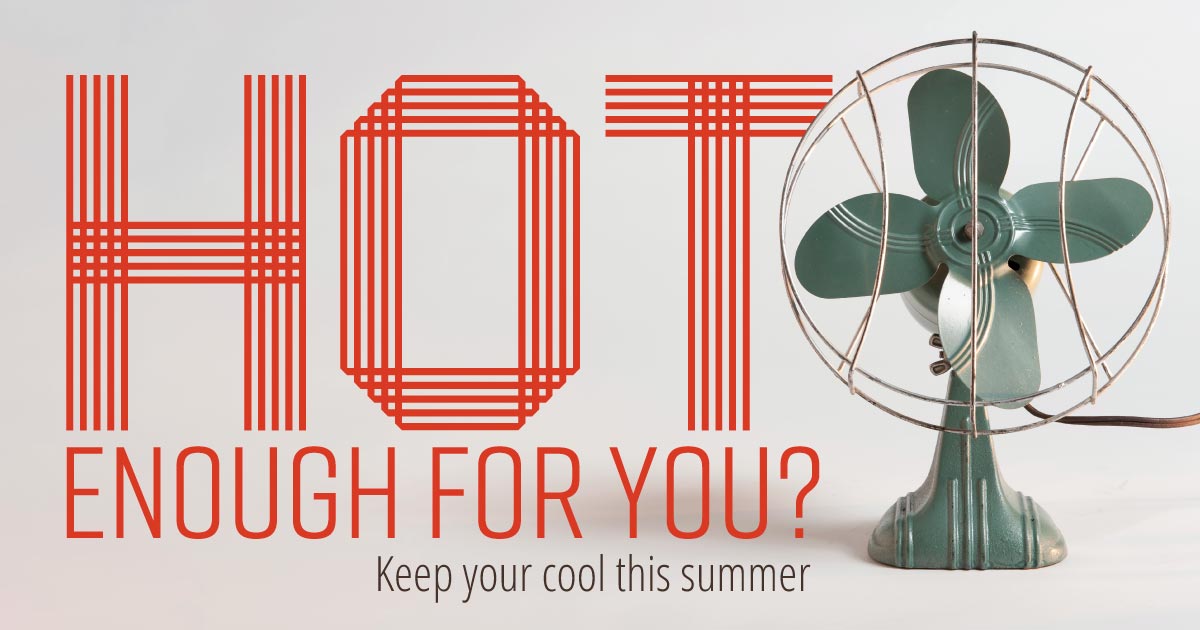CGH Medical Center issued the following announcement on July 15.
Sizzling summer heat can do a lot more than drain your energy. As the mercury rises—especially when it's humid—so does your risk of a heat-related illness. Heatstroke, the most severe kind, can be deadly, according to the National Institutes of Health. These illnesses happen when sweating just isn't enough to cool your body.
The heat can make anyone sick. But babies, young children, adults 65 and older, and people with chronic health conditions are especially prone to heat-related illnesses.
What to do when the heat is on
There are things you can do to help prevent heat-related illnesses—even in high-risk people. Here are eight steps the Centers for Disease Control and Prevention advises:
1. Dress for the heat. Wear lightweight, light-colored, loose-fitting clothes.
2. Chill inside. As much as possible, beat the heat in an air-conditioned building. If your home doesn't have air conditioning, head somewhere that does—maybe a nearby mall or library. Even a few hours a day of air conditioning can help keep you from becoming overheated.
Be aware: Electric fans have limits. They won't prevent a heat-related illness when it's in the high 90s outside. Protect yourself by finding an air-conditioned spot or cooling off with a cool shower or bath.
3. Schedule smart. Try to save exercise and outdoor activities for the coolest parts of the day—usually the morning and evening. If you are out in the midday sun, be sure to take frequent breaks in the shade.
4. Don't overdo it. If you have to exercise or work in the heat but aren't used to it, give your body time to adjust. Start slowly and pick up your pace gradually. If your heart starts pounding and you’re gasping for breath, stop what you're doing and rest somewhere cool.
5. Shield your skin. A sunburn can make it harder to cool down. So slather on broad-spectrum sunscreen (SPF 15 or higher) 30 minutes before going outside.
6. Stay hydrated. Sip water or other non-alcoholic, low-sugar drinks regularly. Don't wait until you're thirsty. If your doctor limits what you drink or you're on water pills, ask how much you should drink when it's hot.
7. Keep a close watch on those at risk. During heat waves, visit vulnerable adults, such as seniors, at least twice a day to make sure they're OK.
8. Protect little ones. Never leave children or pets in parked cars. Even if the windows are cracked open, the temperature inside can quickly become deadly.
Know the danger signs
Do you know what to do in an emergency? Learn the warning signs of different heat-related illnesses—and how to respond to each one.
Original source can be found here.

Source: CGH Medical Center



 Alerts Sign-up
Alerts Sign-up